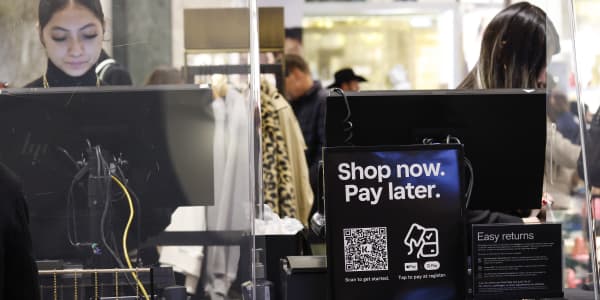"Alexa, sell yourself."
Amazon's goal this shopping season appears to be clear from its promotions and its placement: pump its voice shopping assistants, Echo and Echo Dot.
The top advertisement on its page on Black Friday featured four Amazon products, two of which were voice: Echo Dot for $29.99 (down from $49.99) and Echo for $79.99 (down from $99.99). It listed Echo Dot first in its "Hottest Deals" category and Amazon device deals. The promotions continued through the weekend in advance of Cyber Monday.
It was also promoting the product in Bloomingdale's and through its partnership with Kohl's.
Google, meanwhile, was selling its $49 Google Home Mini for $29 along with a $10 coupon on its own website. Similar Google Home Mini deals could be found at Best Buy, Williams-Sonoma and Office Depot.
Echo was one of the top sellers on Thanksgiving and through Black Friday morning, according to Adobe Analytics.
The battle between Google and Amazon in promoting their voice products goes beyond winning the $4 billion U.S. smart-speaker market. Amazon already controls 70 percent of the category. They continue to eye the leverage that voice gives in search and control over the shopping process.
Voice results are more persuasive than web results. It is easier to scroll down a web page than it is to listen through each item listing. This capacity has already become evident in Amazon's usage of Alexa to push its private label and reinvigorate the importance of sponsored products.
"With voice, they can more effectively push than ever before," said Aaron Cheris, head of Bain's Americas retail practice.
If a shopper searches for an item on Alexa that is offered by Amazon private label, it first recommends its own private-label products 17 percent of the time, despite the fact these products make up 2 percent of products sold, according to an analysis done by Bain.
Meanwhile, roughly 5 percent of Alexa's first recommendations are sponsored products, not "Amazon's Choice" or a top search result. Unlike on its web pages, Amazon does not label these results as sponsored.
Watch: This is the one holiday where we could see retail winners that aren't Amazon





